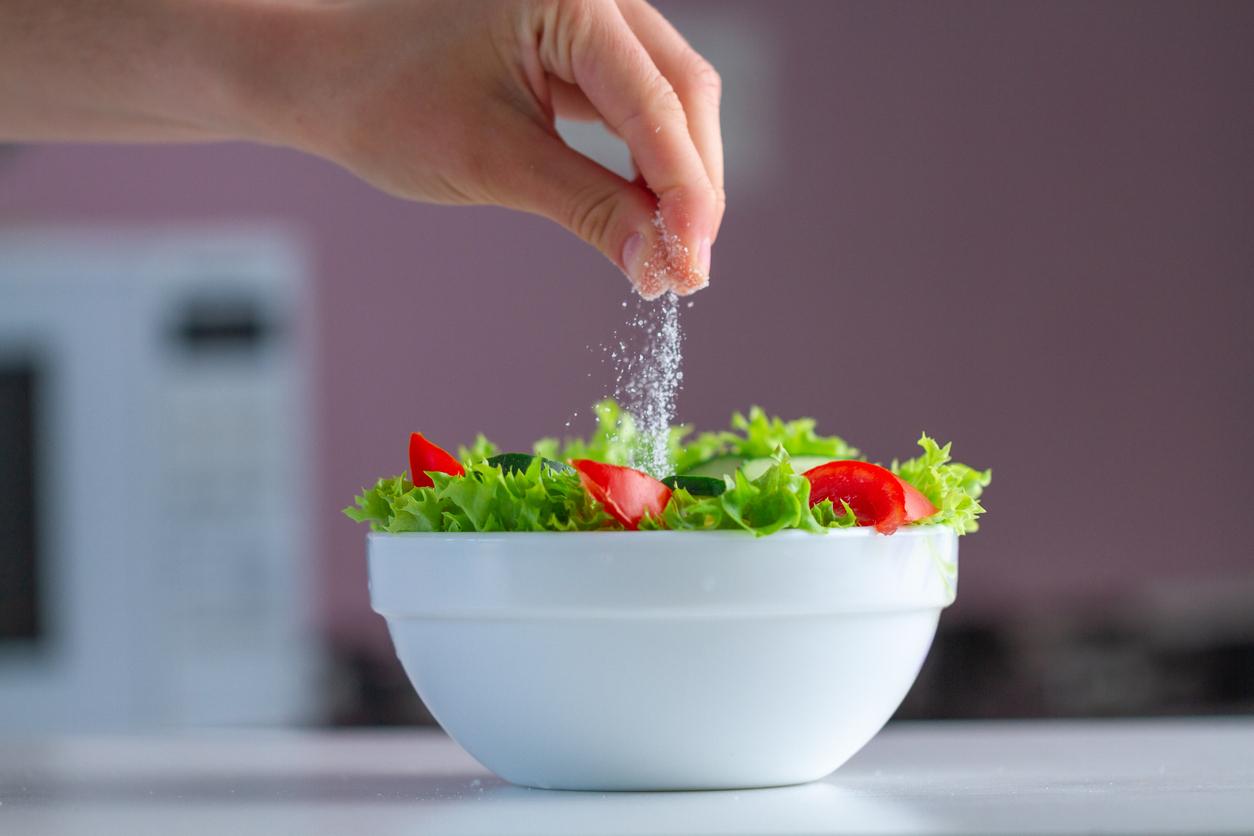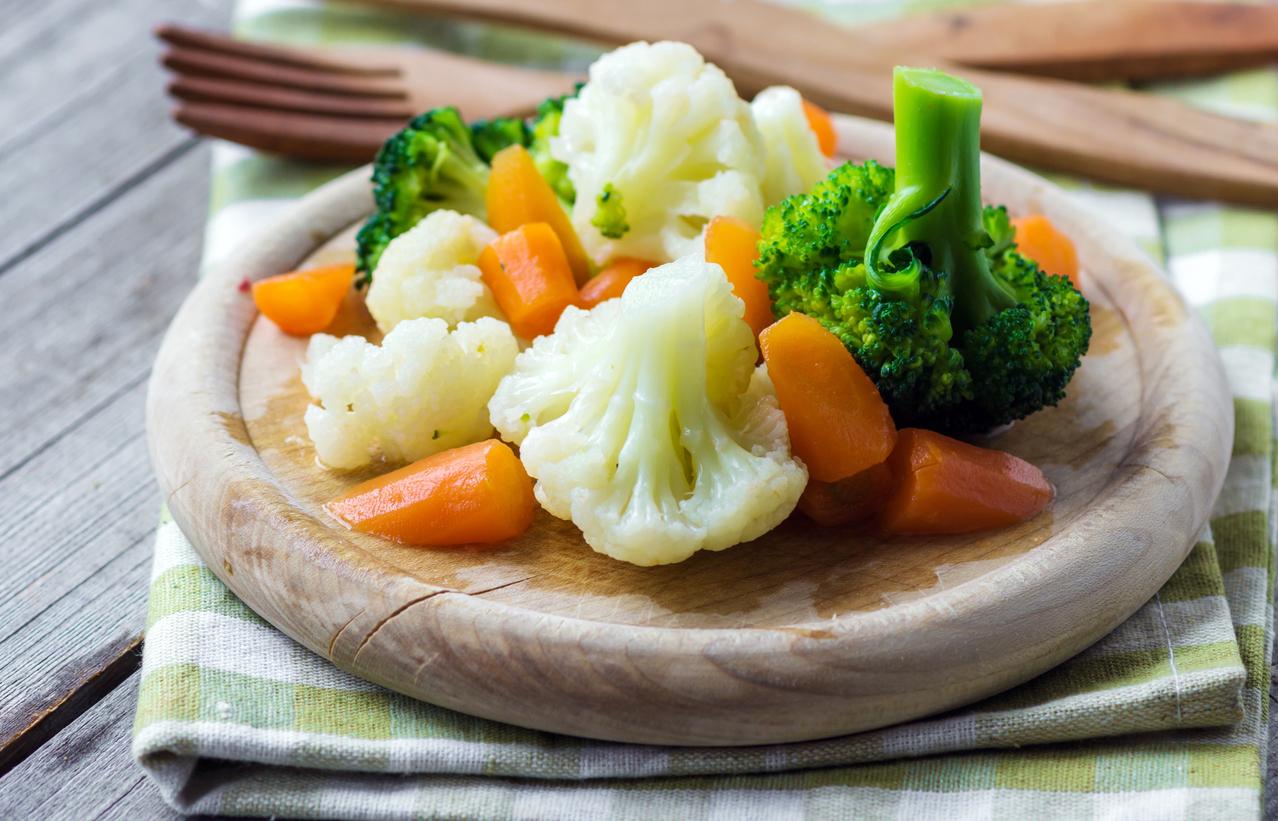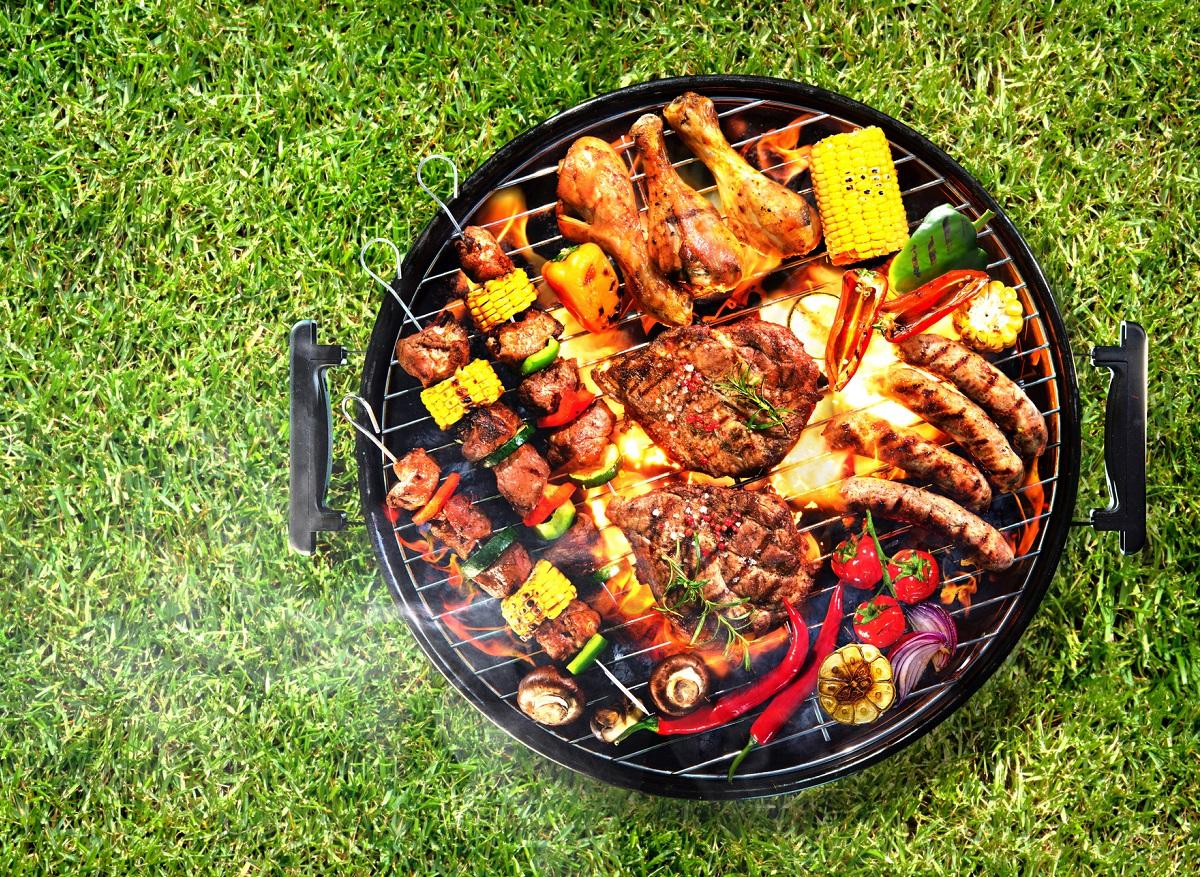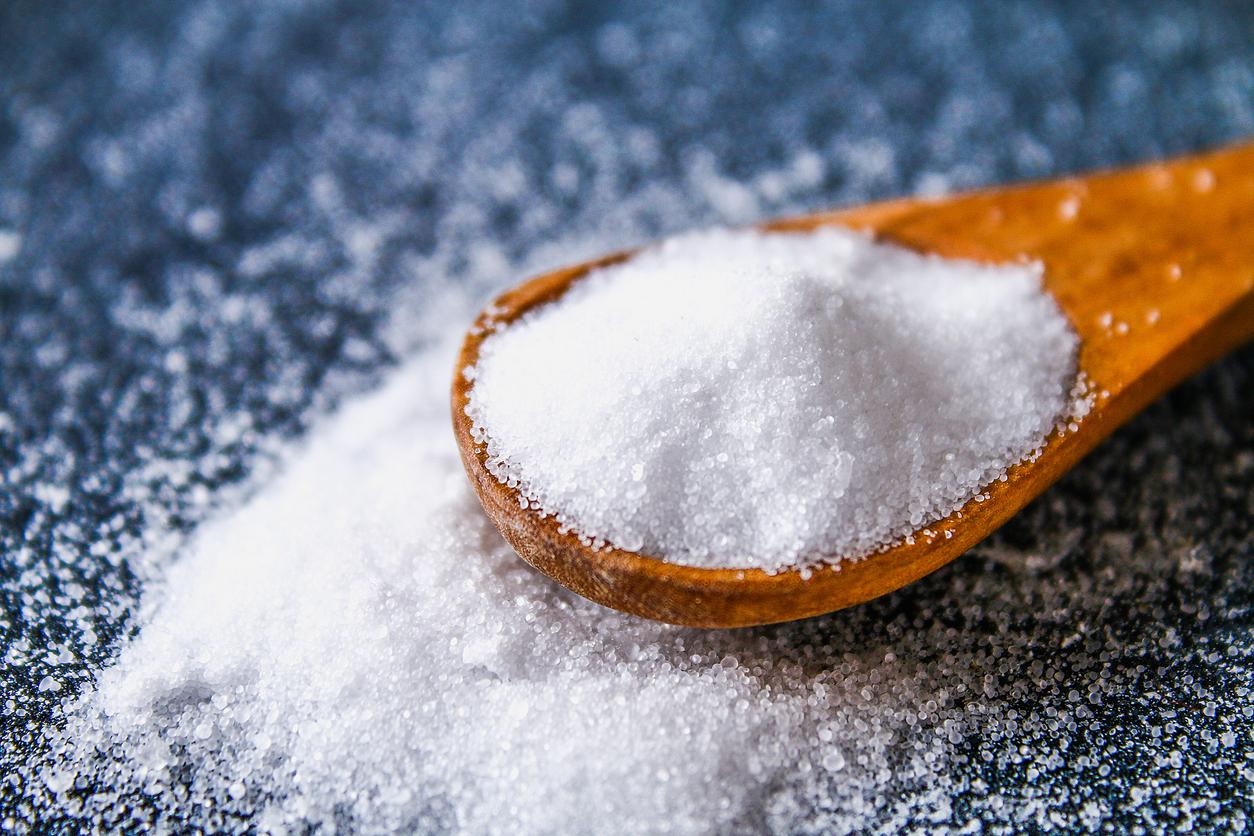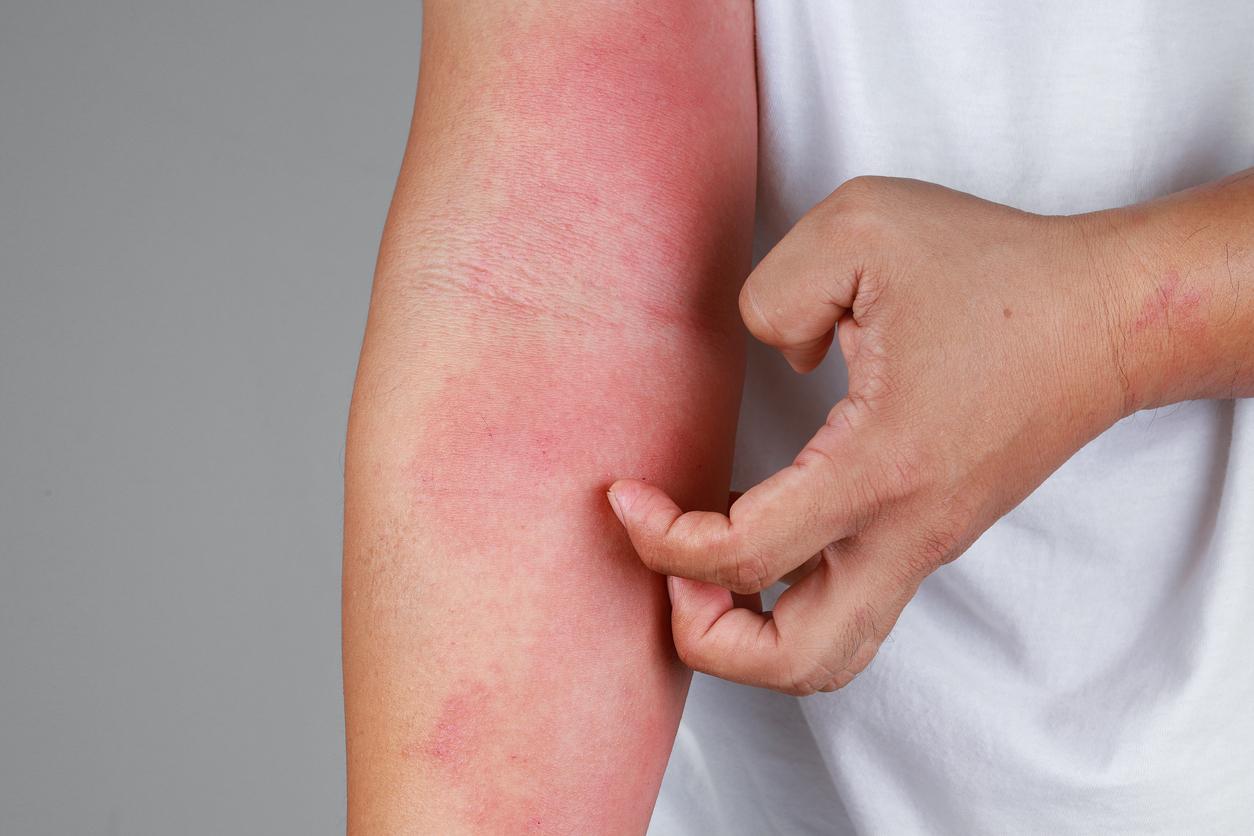Cooking spaghetti or macaroni in water containing iodized salt can release potentially harmful substances.
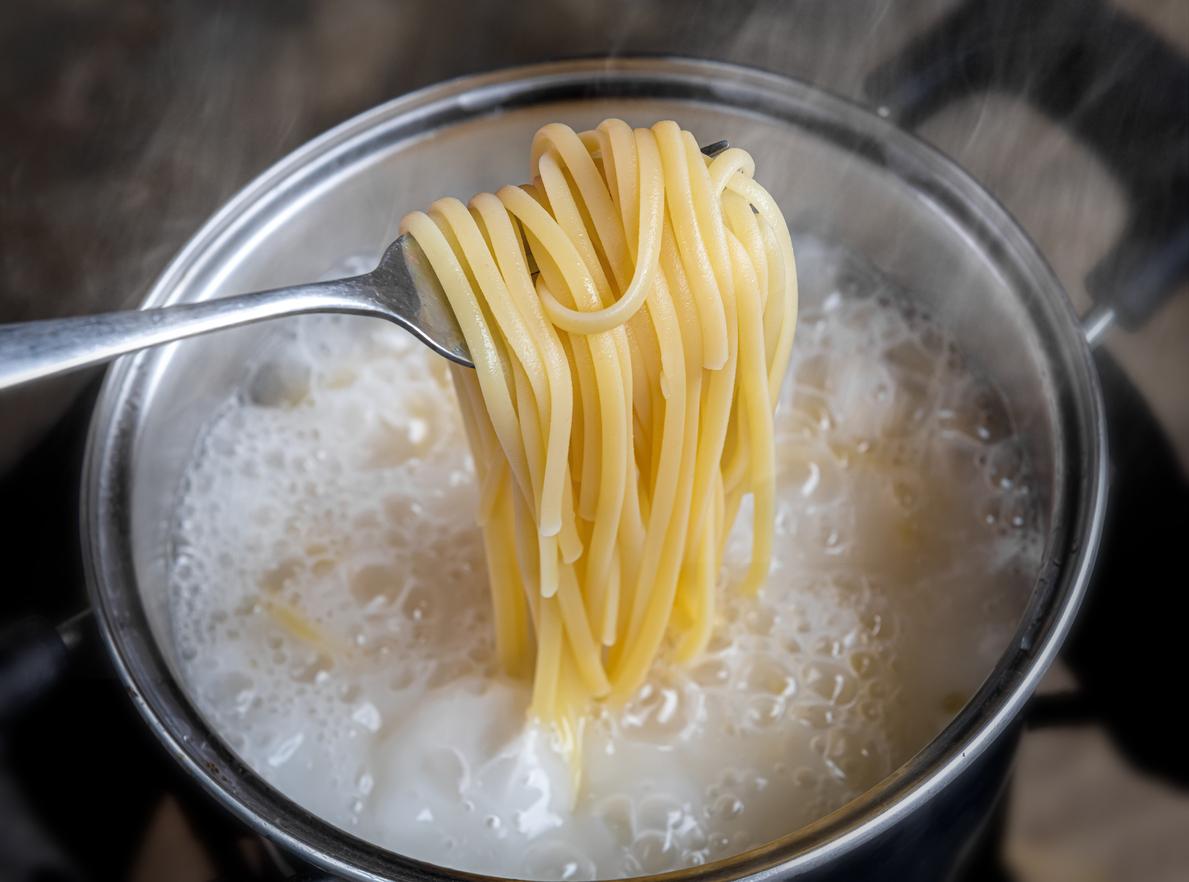
- Iodine is essential for the synthesis of thyroid hormones.
- After cooking pasta in tap water treated with chloramine and salt, six chemicals were found in the cooked starches and cooking water.
- It is advisable to use salt without iodine if you want to add salt to the pasta cooking water.
Iodine is “essential for the synthesis of thyroid hormones which play a fundamental role in the processes of cell growth and maturation, maintenance of body temperature, regulation of energy expenditure and protein synthesis”, noted ANSES. To prevent disorders caused by iodine deficiency, it is advisable to consume seaweed, molluscs or crustaceans. Another food to favor: iodized salt. But recently, researchers at the University of South Carolina (USA) advised against salting pasta cooking water with this table salt.
Six iodinated trihalomethanes in pasta water and cooked starches
In the context of work published in the journal Environmental Science & Technology, they cooked macaroni in tap water treated with chloramine, a disinfectant, and in salt. In the first test, they boiled the pasta according to the instructions on the package, but in the other experiments they changed the cooking conditions and the type of salt.
The researchers then measured the amounts of six iodinated trihalomethanes (chemicals that can contaminate drinking water when chlorine reacts with other natural organic matter), which are potentially toxic compounds, in cooked starches and in pasta water.
“We found that chloramine residues in tap water can react with iodized salt and organic matter in pasta to form chemicals,” can we read in the results of the study. Clearly, the authors detected the six iodinated trihalomethanes in the cooked pasta and in the cooking water, but the cooking conditions had a significant impact on the quantities found.
Cooking Pasta: 4 Ways to Reduce Adverse Reactions to Iodized Salt
Based on their results, the scientists identified four ways to reduce the possible consumption of these potentially dangerous substances. They recommended:
- Cook starches without a lid to allow chlorine compounds to escape
- Drain the pasta well from the water in which it was cooked to remove most contaminants.
- Add iodized salt only after cooking to reduce the risk of chemical formation
- Use salt without iodine if you want to season the pasta water










